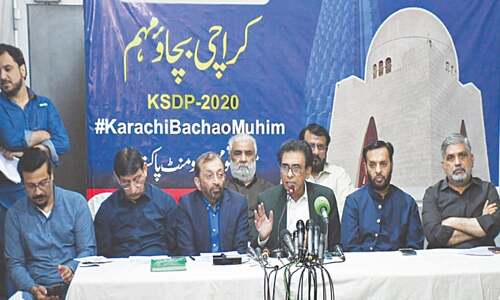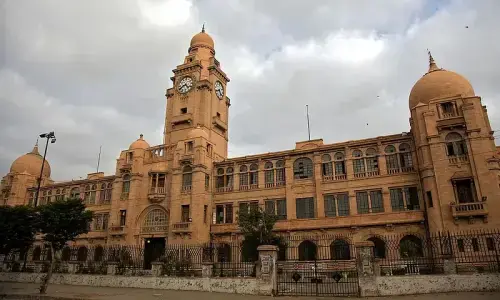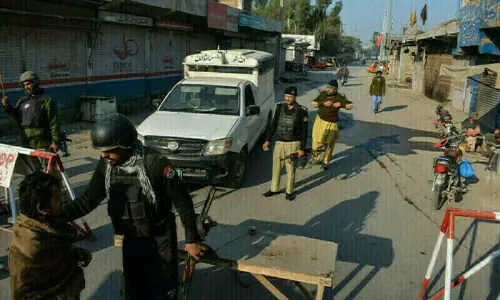KARACHI: The change in India-Pakistan relations is based on three important factors, travel, trade and technology, as with the diaspora from the two countries to a third country and interacting with each other there has added a new dimension to the relationship. Likewise, technology and trade has brought the nations closer.
These views were brought forth by Dr T.C.A. Raghavan, the high commissioner of India in Pakistan, in a talk on “India-Pakistan Relations: Trends and Prospects” at the Shaheed Zulfikar Ali Bhutto Institute of Science and Technology at its Clifton campus auditorium on Thursday.
Dr Raghavan explained that the communities from the two countries existing peacefully and even contributing fruitfully to each other’s work in these third countries had brought about a change in the mindset.
While discussing trade and its potential, he said that trade between India and Pakistan had enormous potential and could be used as a confidence-building measure. It was only recently that both sides had begun to realize that trade was important in itself and not be only used as a crutch for the political process, he added. “Earlier trade was seen as a part of an overall diplomacy effort and not seen as per se. Of course, there are concerns in India that the trade is heavily tilted towards Pakistan as there are similar concerns here that trade is heavily tilted towards India. However, there are enough people on the two sides who say it is in the overall interest of both neighbours.”
He stated that bilateral trade was now nearly 2.5 billion dollars with Pakistan’s exports to India nearly half a billion dollars.
He illustrated the benefits of trade as a means of confidence-building measure between his native country and China. “Trade’s transformative effect has been observed in South-East Asia where it has been used as an important bilateral instrument. For instance China is the biggest trading partner with India.”
Regarding technology, Dr Raghavan said: “Communication technologies, particularly the internet, have made it impossible for both the governments to demonise each other.”
The early portion of his talk was focused on delving into the past of both countries by dividing it into three periods of history: 1999 till the present day, the first decade after Partition, and 1979.
About the past decade, he said: “There were significant outcomes and substantial gains such as improved trade relations at the Wagah border, opening of the line of control [LOC] in Kashmir for trade, the joint commission was revived and there was greater clarity in the Indus Water Treaty.”
With reference to the first decade after the Partition, he said: “The aftermath of Partition led to bitterness in and cast a shadow on India-Pakistan relations. But if one takes a closer look then it is revealed that significant achievements were attained such as the demarcation of boundaries, first India-Pakistan cricket series with both sides touring each other’s lands and other sports contests including hockey. Moreover, currency issues were resolved and political leaders from both sides interacted with each other on a personal level so much so that they called each other by their first names.”
In connection with 1979, the Indian high commissioner said that it was a profound year filled with significant global political changes that had a bearing on India-Pakistan relations. “It was the year of revolution in Iran, breakdown in US-Iran relations and the Soviet Union invaded Afghanistan.”
A question and answer session followed the talk in which one query pertained to the fact that the high commissioner did not touch the Kashmir dispute and the other related to the ‘nuclearisation’ of the two states. “The intention was to not talk about Kashmir precisely because here in Pakistan people have a particular view and similarly in India there is a diametrically opposite view. We cannot change positions overnight but we do understand that we have to make progress and this can only be done by coming up with innovative ways to improve relations between the two,” the Indian high commissioner said.
“The nature of today’s world is such that there will be expense on national security and defence budgets. We cannot live in an idealised world and have to be more realistic. But we need to utilize our resources for development more effectively,” he added.

































